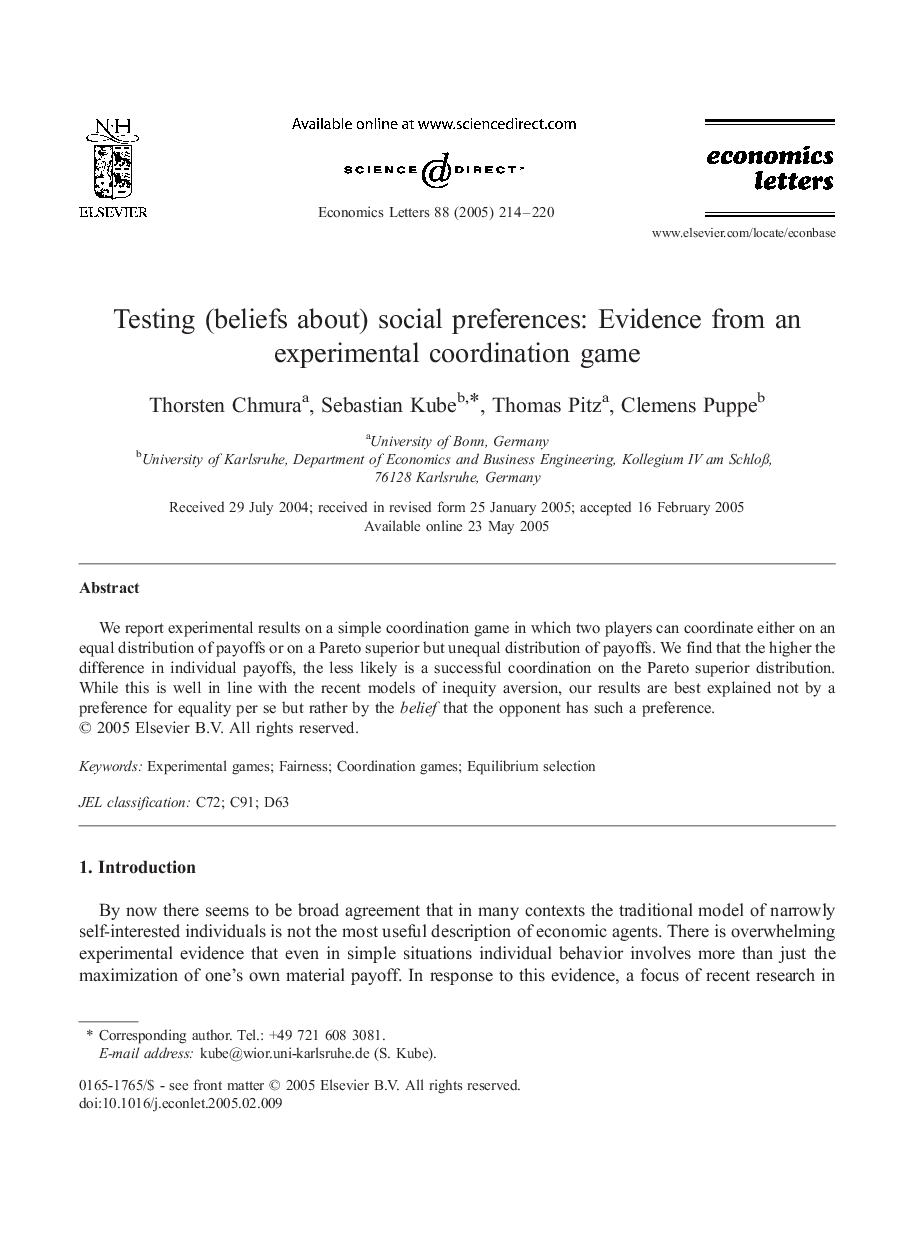| Article ID | Journal | Published Year | Pages | File Type |
|---|---|---|---|---|
| 9549466 | Economics Letters | 2005 | 7 Pages |
Abstract
We report experimental results on a simple coordination game in which two players can coordinate either on an equal distribution of payoffs or on a Pareto superior but unequal distribution of payoffs. We find that the higher the difference in individual payoffs, the less likely is a successful coordination on the Pareto superior distribution. While this is well in line with the recent models of inequity aversion, our results are best explained not by a preference for equality per se but rather by the belief that the opponent has such a preference.
Related Topics
Social Sciences and Humanities
Economics, Econometrics and Finance
Economics and Econometrics
Authors
Thorsten Chmura, Sebastian Kube, Thomas Pitz, Clemens Puppe,
